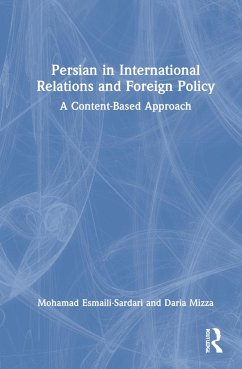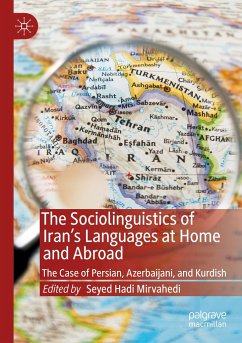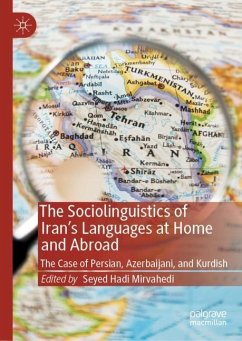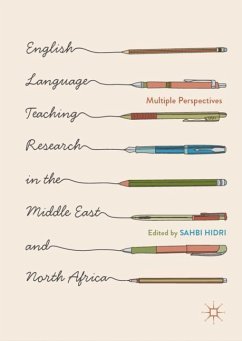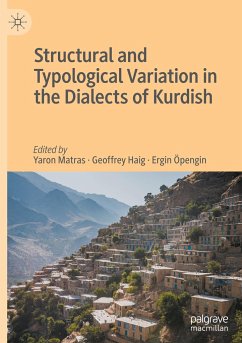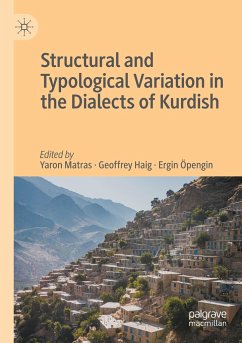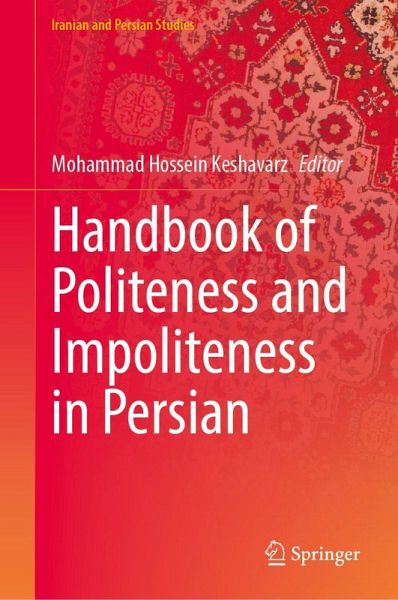
Handbook of Politeness and Impoliteness in Persian
Versandkostenfrei!
Erscheint vorauss. 26. Januar 2026
126,99 €
inkl. MwSt.

PAYBACK Punkte
63 °P sammeln!
This ground-breaking book offers an in-depth exploration of the multifaceted nature of politeness and impoliteness in Persian, shedding light on how these communicative strategies are deeply woven into the sociocultural fabric of Iranian society. Anchored in rigorous scholarship, it examines the ways in which Persian speakers manage face, navigate social hierarchies, and express solidarity or dissent through language. From the ritualized and often paradoxical practice of ta’¿rof to subtle pragmatic cues that signal respect, resistance, or relational alignment, the chapters reveal how lingu...
This ground-breaking book offers an in-depth exploration of the multifaceted nature of politeness and impoliteness in Persian, shedding light on how these communicative strategies are deeply woven into the sociocultural fabric of Iranian society. Anchored in rigorous scholarship, it examines the ways in which Persian speakers manage face, navigate social hierarchies, and express solidarity or dissent through language. From the ritualized and often paradoxical practice of ta’¿rof to subtle pragmatic cues that signal respect, resistance, or relational alignment, the chapters reveal how linguistic behavior reflects broader cultural values and social expectations. Bringing together leading scholars and experienced practitioners in the fields of pragmatics, sociolinguistics, and cultural studies, the volume offers a rich interdisciplinary perspective on Persian interactional norms. It investigates both everyday exchanges and institutional discourse, highlighting the dynamic interplay between language, identity, and power. By situating Persian politeness phenomena within a global framework, the book challenges Western-centric models and contributes to a more inclusive understanding of linguistic etiquette and interpersonal communication. It is an essential resource for scholars, educators, and students in the fields of pragmatics, sociolinguistics, anthropology, and cultural linguistics, in particular those interested in the politeness features of non-Western languages and the cultural dimensions of discourse.



